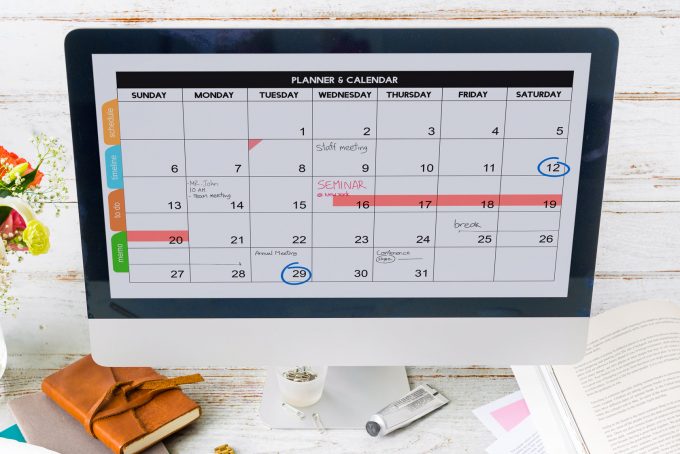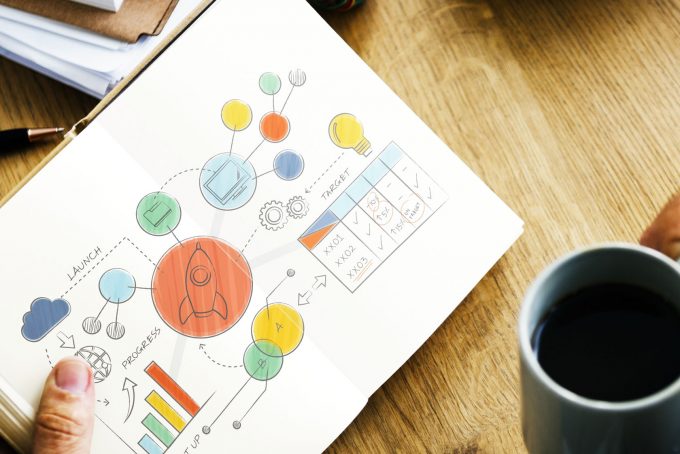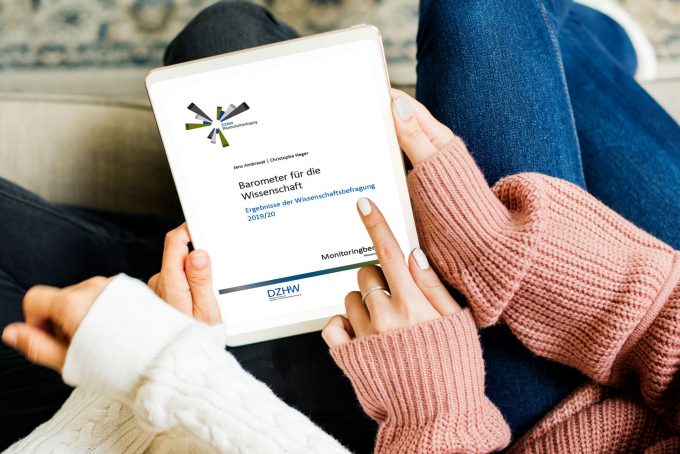
Open Access Days 2018 – Part I: How is Open Access Developing in the Context of Open Science?
"Diversity of open access" was the motto of the Open Access Days 2018. Topics included the implementation of open access and open science at the national level and in particular subject areas, the state of open science, transformation strategies, and the results of individual initiatives and projects. The first part of our conference report focuses on the implementation strategies of open access and open science on national level.
From 24 to 26 September 2018, the 12th Open Access Days took place in Graz at the Technical University, this time under the motto “Diversity of open access”. The extensive programme with over 50 lectures as well as workshops, poster presentations and company lectures met a great demand again. The conference focused on open educational resources, the importance of the “Green Road” today, and open access in the context of open science. More than 300 participants attended the event; more than half of them from Germany. We present a selection of the 15 sessions.
Open Access in France
Three keynote speeches were also included in the conference programme. In the first keynote “Open Access in France: how the call of Jussieu reflects our social, technical and political landscape”, Laurent Romary from the research organisation INRIA looked at the open access landscape in France. In many respects, this landscape is clearly different from that in Germany, especially since France’s science system is in many respects rather centralistic.
This led to the early development of national science communication institutions, including a central repository system (HAL), a central research evaluation organisation (HCERES) and a national consortium to negotiate digital publishing content (COUPERIN).
Einen schönen Abschluss für die #OAT18 @tugraz bildete die Keynote von Katja Mayer. pic.twitter.com/4Je4o68YSW
— Open-Access-Tage (@OATage) 26. September 2018
These national systems promote the implementation of science policy guidelines and help to promote the implementation of open access within the framework of a national open science plan announced this summer. In France, the so-called Jussieu call also plays a major role in this implementation, an approach to open access transformation in which (unlike, for example, the OA2020 initiative of the Max Planck Society) the focus is less on agreements with large publishers and the establishment of publication funds than on the establishment of alternative business models and infrastructures.
DEAL in the context of open access transformation strategies
In the second keynote Hildegard Schäffler from the Bavarian State Library highlighted the project DEAL. This project aims to achieve Germany-wide contracts for the journal portfolio of scientific publishers (negotiations are currently underway with Elsevier, Wiley and SpringerNature) according to the publish & read model. The target group of the licenses comprises all predominantly publicly funded research institutions in Germany. An important aspect of DEAL is that, within the framework of a licensing agreement, all publications by first-time authors from German scientific institutions are automatically switched to open access. In her very well structured lecture, Ms Schäffler also placed DEAL in the larger context of possible OA transformation strategies.
How is Open Science implemented at the national level?
The final keynote on the last day of the conference was given by Katja Mayer from the Centre for Social Innovation in Vienna on the topic “Open Science – Where do we go from here?”. The Austrian Presidency of the Council of the European Union has focused, among other things, on strategies for the implementation of open science. Open science is currently being promoted by a wide variety of institutions in the EU states. At the same time, however, a national open science strategy and a common understanding of how open science could be implemented at the national level are often lacking.
In order to support the national coordination of open science initiatives, the European Commission has created the Mutual Learning Exercise, a forum in which the problems and experiences of a large number of countries and institutions can be openly discussed. Topics of the Mutual Learning Exercise on open science were in particular the potential of Altmetrics, incentives and the scientific recognition system as well as the development of a national roadmap for the implementation of open science. Katja Mayer stressed that in particular the development of an open science friendly evaluation system for research and the right incentive and recognition system are essential prerequisites for a successful transition to open science.
First results of the National Open Access Contact Point
In Session 1, the central results of the first project year of the National Open Access Contact Point OA2020-EN were presented. The aim of the contact point is to support academic institutions, libraries, professional societies, publishers and also individual academics in the German-speaking area in the OA transformation. In the first lecture, Alexandra Jobmann and Nina Schönfelder from the University of Bielefeld reported on two pilot projects.
The first develops transformation models for OA e-books in cooperation with the publisher transcript and Knowledge Unlatched. The second is an OA project for journals in cooperation with the publisher Copernicus with the aim of forming a consortium in Germany. This will then promote genuine OA projects and improve the predictability of article processing charges (APC) for libraries by enabling advance payments based on past publication figures. Alexandra Jobmann then presented a transformation index.
The team of the #OAT18 @tugraz says goodbye to all participants. Hope to see you all in Hannover next year at the #OAT19!
Looking forward to your feedback: https://t.co/NddSS3eyhF#OA #openaccess #openscience #OER #OAgreen @tugraz @openaccessnet pic.twitter.com/XgVIfvD6g0— Open-Access-Tage (@OATage) 26. September 2018
Its aim is to create an instrument for measuring progress in open access transformation at the level of academic institutions and libraries. To this end, indicators will be created in the areas of policy (for example OA Policy), action (for instance DEAL), infrastructure and key figures. In the last presentation of the session, Nina Schönfelder presented a study on influencing factors on APC. The results show that the impact factor and the hybrid status of a journal are decisive for the amount of article processing fees to be paid. Factors such as the department and the publisher also influence the APC level.
Status of the Open Science movement, initiatives and projects
Session 3 focused on the presentation of initiatives and projects from the open science movement. Jasmin Schmitz from the ZB MED – Information Centre for Life Sciences kicked off the session with her lecture “Open Science – where are we now, really?”. She first spoke about the importance, goals and impulse-giving initiatives of open science, and then pointed out that there is no consistent definition and understanding in this regard. She spoke about the importance of open science by splitting it in its various sub-areas: open access, open data, open source, open peer review, open methodology and open educational resources.
The status quo of the individual sub-areas was critically examined and the respective challenges and potential for improvement were pointed out. While great progress has already been made in accessing publications in open access and research data according to the FAIR data principles, scientific institutions are still in the early stages of opening up the other stages of scientific work processes. In summary, a highlight-like overview was given of the development stage of the open science movement in the areas of application, open methods, open protocols, open laboratory books, open peer reviews, open metrics, open educational resources, open innovation and citizen science. It was also discussed within the session whether and how an opening of these sub-areas can succeed.
Tony Ross-Hellhauer from the Know Center in Austria then presented the collaborative knowledge environment of the EU-funded OpenUp Hub project (http://demos.know-center.tugraz.at/openup-hub/ ). This hub serves for the networking of central stakeholders in order to jointly record, organise and categorise research results, best practices, tools and guidelines that are relevant for the review, dissemination and assessment phases of the research life cycle. It is an integrated and user-oriented solution that focuses on the scientific community and addresses its needs. The primary target group consists of stakeholders who are integrated into the life cycle of research data. These are, for example, researchers, young scientists, teachers, librarians, publishers or R&D project members.
Die gesammelten Vortragsfolien zu den #OAT18 @tugraz sind nun auf Zenodo für alle Interessierten abrufbar:https://t.co/19EKseVFBg#OA #openaccess #openscience #OER #OAgreen @tugraz @openaccessnet pic.twitter.com/RrCAXayQB3
— Open-Access-Tage (@OATage) 5. Oktober 2018
At the end of the session, Monika Linne from the ZBW – Leibniz Information Centre for Economics presented the BMBF-funded initiative GO FAIR. GO FAIR is a proposal for the practical implementation of the European Open Science Cloud (EOSC). It is an open and bottom-up approach that aims to integrate all research areas and member states in order to make research objects jointly usable and reusable in the future. In order to implement the FAIR principles (Findable, Accessible, Interoperable, and Reusable), a network of cross-country and cross-disciplinary implementation networks is currently being set up so that synergies can be created and redundant work within the fields of action can be avoided. All activities of the GO FAIR initiative support the open access philosophy of making research data openly accessible whenever possible and making it available for subsequent use. Thus, research results are made transparent, further research is made possible at low cost, quality assurance can be carried out and confidence in science can be established or maintained. Thus, the GO FAIR initiative paves the way for EOSC, which will connect researchers throughout Europe in the future.
The second part of our conference report deals with the development of open access in individual subjects and projects.
View Comments

Kick-Start for the German GO FAIR Community: Second Workshop Reveals Potential for Synergies
Using the motto ‘GO BUILD – GO TRAIN – GO CHANGE’, Germany’s second workshop for the...



